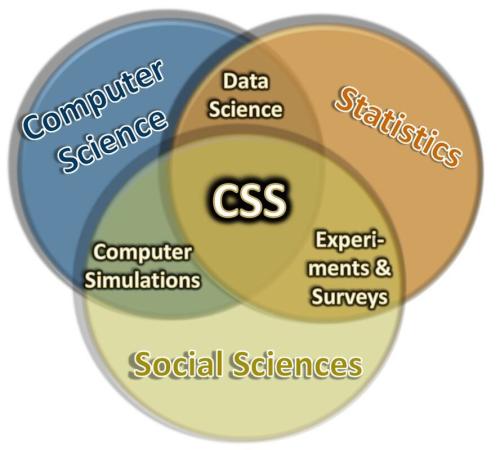
Digital technology has not only revolutionized society but also the way we study it. For one, an increasing part of human interaction leaves a massive digital footprint (aka 'big data'). Studying it allows us to gain unprecedented insights into what society is and how it works, including aspects that had long been evasive, such as intricate social networks and behavioral dynamics through time. Computational methods also provide scholars with new opportunities for surveys, field experiments and new platforms for virtual experiments (aka ‘apps as labs’), which, among other benefits, allow researchers to efficiently scale from the individual to the group level. Additionally, today’s computational power allows us to both detect hidden patterns through artificial intelligence and to simulate social dynamics from the bottom up (aka 'computer simulations'). The latter enables researchers to test for different causal generative mechanisms and to envision and explore hypothetical situations of futures and scenarios that may not exist in empirical reality (yet).
A specialization in Computational Social Science, like this Designated Emphasis, is part of a quickly growing field, with its own academic conferences, and allows students with computational and mathematical skills to deepen their understanding of social science theory and it allows students from the social sciences to improve their analytical skills in areas like big data analysis, computer simulations, network analysis and machine learning.
